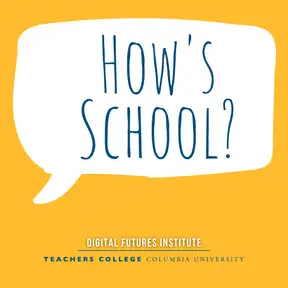How to Listen to Young People
We think we are listening, so why don’t young people feel heard? This age-old, generational communication gap is the perfect place to begin a podcast show about how to connect with young people and ask better questions.
We think we are listening, so why don’t young people feel heard? This age-old, generational communication gap is the perfect place to begin a podcast about how to connect with young people and ask better questions. The questions we ask only matter to the degree to which we are able to listen to and genuinely hear the answers.
Professor Limarys Caraballo listens to young people professionally. Join us as we discuss where the breakdown in listening occurs and what causes it (2:57), how to back up and see if we have shared ideas of success (4:06), and making sure we’re not engaging in performative listening (5:16).
We also look at how our position in the relationship plays into conversations, and how the stakes differ for us and for our young people (7:50). Professor Caraballo shares a story about a time she and a colleague tried very intentionally to listen to students and why their attempts fell flat (12:12).
Dr. Caraballo breaks down some steps that all of us can do again and again, beginning with identifying the goals of our interaction (14:57). Next, she recommends reflecting on our own expectations, assumptions, and implicit bias. Finally she shares tips for reflecting on the stakes, asking whose interests are being served, and looking for how power can be shared (19:33).
Follow "How’s School?" for new episodes and announcements. You can find the full transcript of the episode, along with links to Professor Caraballo’s work, on the episode website.
Follow, rate, and review to support the show.
This series is created, hosted and produced by Joe Riina-Ferrie and Jen Lee, with audio production and original music by Billy Collins. "How's School?" is a production of The Digital Futures Institute at Teachers College, Columbia University.
The views expressed in this episode are solely those of the speaker to whom they are attributed. They do not necessarily reflect the views of the faculty, administration, staff or Trustees either of Teachers College or of Columbia University.

